
Main Page
Alphabetical Menu
Chronological Menu
|
Blue is the Warmest Color 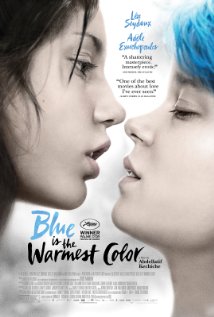 Adapted from Julia Maroh's graphic novel Blue Angel, Blue is the Warmest Color centers on the evolving sexually-charged romance between two lovers, 15-year-old Adèle (Adèle Exarchopoulos) and a college art student, Emma (Léa Seydoux). Adèle has tried sleeping with boys, but they don't fulfill her sexual or emotional desires as much as Emma does. Both of them come from different kind of families. Adèle's parents seem reserved and cold compared to Emma's warm, Bohemian parents. One can see why blue-haired Emma turned out to be so free-spirited and true to herself. Their relationship hits a few bumps as it progresses because love, after all, is complicated, comes in many different forms, and sometimes fades away beyond one's control. Adèle has a lot to learn about her first experience with love. To label this film as merely a coming-of-age story would be to undersell it because it's much more than that. Writer/director Abdellatif Kechiche captures the mind and soul of Adèle with so much attention to detail that you can't help but care about her immensely as a human being. They're not caricatures nor are they easy to put into a box; they're both complex and fallible which makes them all the more interesting. Adèle Exarchopoulos and Léa Seydoux give radiant performances that feel entirely authentic and genuinely moving. When Adèle cries, you can grasp her innate pains, regrets and longings especially by paying attention to her eyes. She's truly an actress who must have depth because it takes someone who's deep to tackle such an emotionally complicated role. The same can be said for Léa Seydoux who's very well-cast here. Both Adèle and Emma are the kind of characters that linger in your mind long after the end credits roll which is a true testament to the film's power. Rarely has the love between two characters onscreen felt so palpably real. Kechiche depicts their relationship unflinchingly and thoroughly so that by the time the end credits commence after 179 minutes, you feel as though you've watched a documentary about Adèle and Emma. You even get to meet their parents, although there are very few interactions between Adèle and her parents, so at least Kechiche leaves room for interpretion there. He also includes beautiful cinematography and uses thought-provoking symbolism, i.e. the many different shades of blue found in the film. What hasn't been mentioned yet, though, is the very explicit sex scenes which gives the film its NC-17 rating. Those scenes aren't shocking or disgusting or perverse because they're authentic and true to the characters of Adèle and Emma. Perhaps the sex scenes come across as surprising given the fact that it's not just sex, it's sex with intense, palpable emotion involved. Blue is the Warmest comes alive because of its raw, pure, unadulterated emotions displayed unflinchingly onscreen. 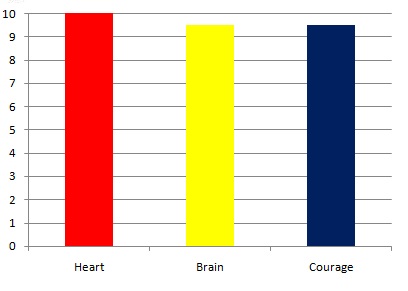  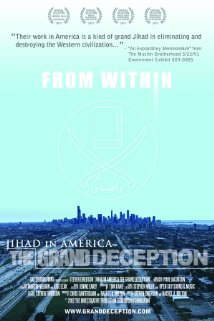 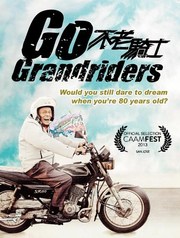 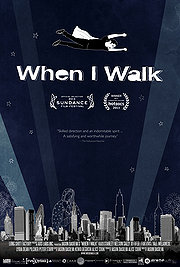
The Square takes you right into the heart and center of the Egyptian Revolution from 2011 when dictator Hosni Mubarak was overthrown from power as Egyptian President until the newly-elected President, Mohamed Morsi, a Muslim Brotherhood member, was overthrown in July 2013. The downfalls of both Presidents had many things in common, but 1st and foremost was the massive number of Egyptians who came to protest at Tahrir Square. Even more Egyptians showed up to overthrow Morsi. Director Jehane Noujaim documents those events with cameras that filmed them as they transpired; there are no re-enactments to be found here. You'll find yourself at the edge of your seat as you watch the footage and hope that those holding the cameras don't get killed---they did risk their lives after all. Adding a human face to the issue, Nojaim follows the experiences three individuals, namely, activist/actor Khalid Abdalla, Muslim Brotherhood member Magdy Ashour, and Ahmed Hassan, a young revolutionary. Each of them gets a chance to express their thoughts and feelings, and what mistakes they've made and lessons they've learned as Egypt becomes increasingly divided. One corrupt government was overthrown only to be replaced by yet another corrupt government. Fortunately, the brave, intelligent and aware Egyptian public, unlike the "Good Germans" during the Nazi regime, has been able to see through the propaganda, to become enraged, and to peacefully protest together in hopes of ameliorating their country---or, as one interviewee puts it, so that he could finally sleep peacefully at night. It takes a village, after all, but concurrently there's more than 2 sides to every coin (there's the ridges, the corners, etc). Without losing focus or dramatic momentum, The Square shows how multifaceted and complex the socio-political issues in Egypt were and still are to this very day. It opens at the Film Forum via Noujaim Films. The Grand Deception raises awareness of a very serious problem plaguing America right under its citizens' noses: the Muslim Brotherhood's increased presence in America to spread their Islamist ideologies and push their political agendas. Have you ever wondered the difference between Islam and Islamism? Co-directors Steve Emerson and Rachel Milton help you to distinguish between the two, to realize how dangerous Islamism is and how it serves as a threat to democracy. You're provided with background information about the inception of the Muslim Brotherhood in 1928 and how it has evolved since then. Most importantly, though, through interviews with a wide variety of experts ranging from former FBI agents and a Muslim Brotherhood leader, Dr. Kamal Tawfik Helbawy, The Grand Deception shows very persuasive evidence of how the Muslim Brotherhood covertly spreads its Islamist ideology and uses the easily-manipulated mainstream media as well as politicians its tools. The Brotherhood even goes to the extent of spreading its ideology through student organizations at U.S universities. Much of this doc unfolds like a thriller, so while you're digesting all of the easy-to-follow information, you'll be shocked, intelligently provoked and enraged, but never bored---all with a running time of just 70 minutes. How should one go about putting an end to the Muslim Brotherhood in America? The answer to that question is a bit murky and not really explored here, but the first step toward progress is raising awareness because the mainstream media fails to do so. Fortunately, that's where the eye-opening, searing, powerful and persuasive exposé The Grand Deception comes to the rescue. It's a must-see for every American, young and old. New World Cinemas opens it at Williamsburg Cinemas and other select theaters. For a full theater listing and to buy tickets, please click here. For a doc that's not so heavy for a change, there's Go Grandriders about a group of 17 senior citizens who embark on a 13-day, 1178 km trek around the island of Taiwan on motorcycles. Some of them are newbies at motor-cycle riding and all of them have a variety of ailments ranging from hearing loss to high blood pressure and coronary heart disease, but that doesn't deter them from experience a once-in-a-lifetime chance of feeling happy and free. The fact that they're above the age of 80 and so energetic as well as enthusiastic is quite heartwarming. Director Tien-hao Hua mainly focuses on the motorcycle trek itself while only briefly delving into the personal lives of some of the seniors; this isn't one of those docs with lots of talking heads. It all feels lighthearted and sweet which is quite refreshing given how most docs nowadays tackle very dark subject matters like the two review above. The director also does a great job of including some gently humorous moments and poignant once, but those traits don't overshadow or distract from the film's focus on the charming, brave and inspiration senior citizens. Prepare to feel exhilarated and uplifted. It's no wonder that Go Grandriders was a huge box office hit in Taiwan and Hong Kong. Catch it at the Quad Cinema via CNEX Foundation. Over at the IFC Center, you'll find When I Walk, a doc, distributed by Long Shot Factory, about how Jason DaSilva learned to cope with being diagnosed with Multiple Sclerosis in 2006. He became unable to walk and had learn how to use a wheelchair. Essentially, his entire lifestyle changed. DaSilva also directed When I Walk and, fortunately, he knows how to tug at your heartstrings and keep you entertained concurrently without being too dry or cloying. With a less talented director, this doc would have felt like naval-gazing. Impressively, he's quite candid about his thoughts and feelings on camera. This isn't one of those boring, heavy medical docs that deal with scientific/medical details. Instead it puts a warm, human face on MS which makes it all the more accessible on an emotional level for general audiences. It also raises awareness of the challenges of finding wheelchair-accessible taxis and restaurants for people like DaSilva. His wit, honesty and wisdom shines through this doc. Parallel to his struggles, there's also the struggles of his wife, Alice Cook, whom he started dating when he had MS. She takes care of him day in and day out, and it's not easy for her to face the fact that she might have to feed him every time they eat together if he were to longer be able to move his hands down the road. She won't let MS stand in the way of their true love of one another. In one of the films most surprisingly revealing moments, he and Alice bring up the topic of sex and how she wasn't sure if he was able to perform. They discuss the possibility of them not having a sex life in the future if were to become unable to rise to the occasion to perform, so-to-speak. When I Walk would have have been as intimate, deeply moving and revealing had it been directed by someone other than DaSilva. Kudos to him for having the courage to film this doc. Anyone who watches When I Walk will be quite proud of him. House in the Alley 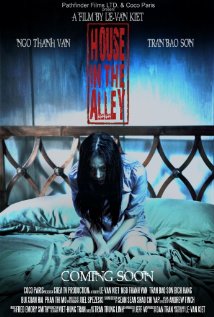 Thao (Ngo Van Thanh) and her husband, Thanh (Tran Bao Son), have just moved into their new house located in an alley when she experiences a bloody miscarriage. A few weeks later, Thao still hasn't buried her stillborn baby; it's inside a small wooden box in their bedroom. She feels depressed and sees strange visions around the house. Something clearly is either wrong with her or the house or both---she even confides in her good friend that she's been having strong urges to kill her husband. Meanwhile, Thanh has his own troubles outside of the house to deal with because workers at his family's factory where he works at have been on strike. His boss at work happens to be his domineering mother who she expects him to take over the family business soon. Clearly, there's a lot at stake for Thanh and his family.
The creepy mood that writer/director Le-Van Kiet establishes often derives from the camera angles, set design, music, lighting, the weather and other aesthetics which become characters within themselves. Even the house that Thao and Thanh move into adds to that creepiness. A few of the film's very memorable scenes include one where Thao has a vision of blood spilling out of a steak as she cuts it, and another simple yet effectively frightening one where Thanh and his co-worker drink beer alone at the factory while you anticipate something sinister to, perhaps, occur. Or there's another memorable scene where Thao's mother visits his house to try to see Thanh. The performances by Tran Bao Son and Ngo Van Thanh are both decent, but the real star of the film is the horror itself---as Roger Ebert once put it, horror doesn't need big stars because the horror itself is the star.
To call House in the Alley a straight-up horror film wouldn't do it any justice because it has many layers. Writer/director Le-Van Kiet blends drama, horror and suspense with mostly satisfying results. The horror is more psychological than anything else because he doesn't rely on gore or cheap scares. Even the apparitions that Thao sees (and you do as well) aren't onscreen for very long. By leaving more to the imagination, Kiet intensifies the film's psychological horror. Kiet gives you the impression that someone else might be watching. Is it the spirit of Thao and Thanh's stillborn son? Or something else? Interestingly, he chooses to make the husband unaware of what's really going on with his wife. In other words, the audience is always one step ahead of Thanh. That doesn't make the film less scary, though, but it does slightly diminish the mystery/suspense, especially during the third act that's not as surprising as it could have been.. 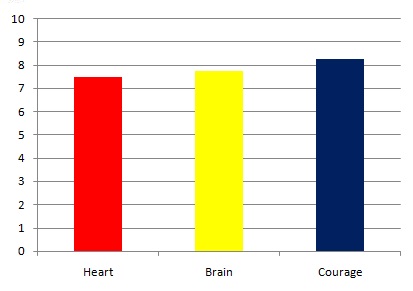 The Pin  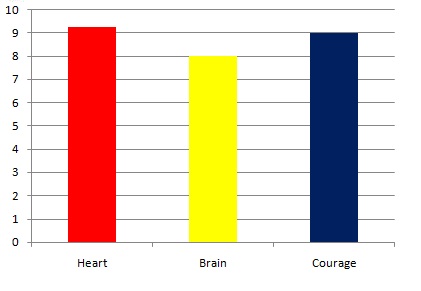 Remington and the Curse of the Zombadings 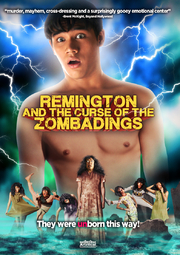 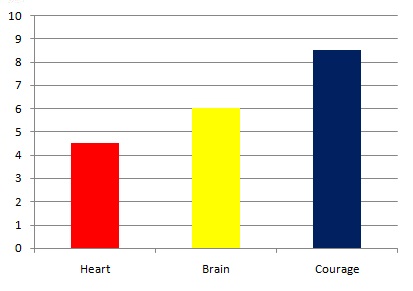 Toad Road 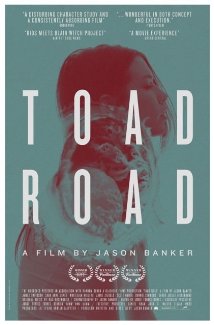 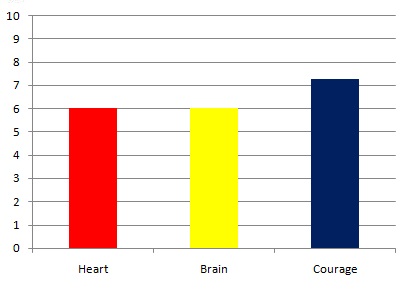 Main Page Alphabetical Menu Chronological Menu ______________________________________________________ |
The NYC Movie Guru
themovieguru101@yahoo.com
Privacy Policy